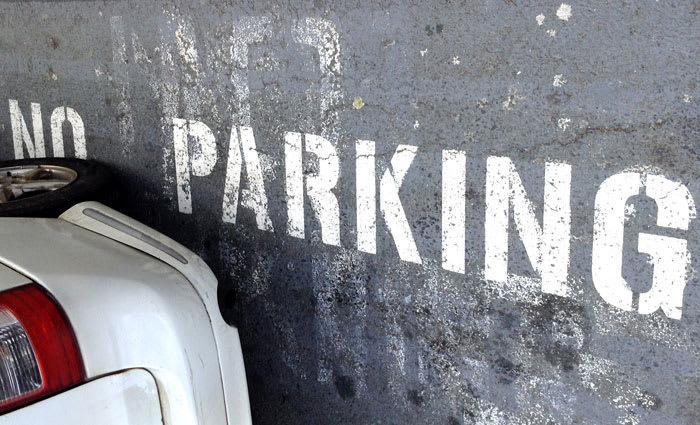Overcrowded strata apartments, illegal parking and other NSW strata reforms
There were some 90 plus proposed changes to strata laws announced by the NSW Government Fair Trading Minister Victor Dominello last week that will affect how strata operates for owner occupiers, landlords and tenants.
It is the first major reform of strata laws since the Strata Titles Act was made in 1973.
NSW has around 75,000 strata schemes worth $350 billion in assets.
The draft Strata Schemes Development Bill 2015 and Strata Schemes Management Bill 2015 have been released for public consultation.
Here are what Property Observer senses are the key reforms.
OVER CROWDED APARTMENTS
The reform will allow owners' corporations to create bylaws limiting the number of adults who can actually live in an apartment with fines for over-crowding to be raised to $5500 for the first offence and $11,000 on the second offence. The reforms allow owners corporations to make a by-law limiting the number of people who can reside in a lot (but schemes must still allow no fewer than two adults per bedroom), so that strata schemes are able to better manage overcrowding. Schemes wanting to impose such a limit could introduce a by-law by passing a special resolution. Larger families would not be discriminated against because the by-law would not apply to children and an overcrowding by-law cannot be inconsistent with the planning approval for the building.
COMPULSORY SALES AND DEMOLITION
The reform will allow 75 per cent of residents of older buildings to agree to their sale to a developer for redevelopment, regardless of the wishes of the 25% minority. Currently there is a requirement of a 100 per cent vote in favour of abandoning a strata scheme. The new process will apply only to existing schemes if the owners corporation agrees to opt in. If the majority of owners (50% or more) don’t support the decision, no further action can be taken.
RENOVATION
The reform will create a three-tier regime that allows certain minor work to be done without permission, some significant renovations to be carried out just with a simple majority vote of the owners' corporation and then for major renovations the need for special resolutions, bylaws and restrictions. The reforms aim to provide clearer, common-sense approvals for owner renovations. They would waive restrictions for minor, cosmetic changes to lots such as inserting a picture hook. Renovations with a lasting impact, such as installing floorboards, would still require approval but only a general resolution (50% of the vote). Renovations like those that affect the structure or external appearance of the building would still require a special resolution (75% of the vote).
PROXY FARMING FOR MEETING VOTES
The reform sees a cap on number of proxies held by owners in larger buildings with a limit of 20 per cent of the vote or five votes, whichever is less.
ILLEGAL PARKING
The reform will allow owners' corporations and local councils to let council parking inspectors patrol strata car parks and issue fines to people who have parked where they shouldn't. As part of proposed changes, owners corporations would be able to enter into an agreement with the local council to manage unauthorised parking on the common property. Current options already available to owners corporations to address unauthorised parking include by-law enforcement, signage and barriers and calling the police if an individual is thought to be trespassing.
DEVELOPER DEFECTS BOND
The reform will see property developers having to place a bond of 2 per cent of the value of the building to cover potential defects after completion. A building bond for the construction of high rise strata buildings (those over 3 stories in height) would maintain developer and builder accountability for their work. A process for the early identification and rectification of defects would be implemented, requiring developers to engage an independent building inspector to carry out a defect inspection report, at their cost, between 12 and 18 months after the completion of the building.
PETS
The reform will change the standard or default bylaw to state that pets are allowed, provided that the strata committee approves, although that approval can't unreasonably be withheld. During consultation on the reforms it was highlighted that, in some cases, people can be forced to choose between their pet and living in a strata building. Reforms would amend model by-laws to make it easier to keep pets as opposed to automatically prohibiting pet ownership in a scheme. The strata reforms would remove any reference to a ban in the model by-laws. Schemes would also be actively encouraged to review their by-laws and to consider whether their existing ban should be lifted. The strata reforms would not remove a scheme’s ability to make its own rules about pets. Schemes could place reasonable conditions on keeping pets (eg. its access to common property). If the model by-law were adopted, the request to keep a pet could not be unreasonably refused. For example, schemes could not unreasonably refuse the keeping of small animals, such as fish, or a cat, but could reasonably refuse rodents or venomous snakes. Each case would be considered on its merits. Guide dogs would continue to be allowed regardless of a scheme’s by-laws and the reforms expand the category of guide dog to include hearing dogs and other assistance animals.
SMOKING
The reform identifies balcony smoke drift as a potential "nuisance" under the legal meaning of the word. The owners corporation would be able to prosecute offenders rather than leaving this to individual owners.
